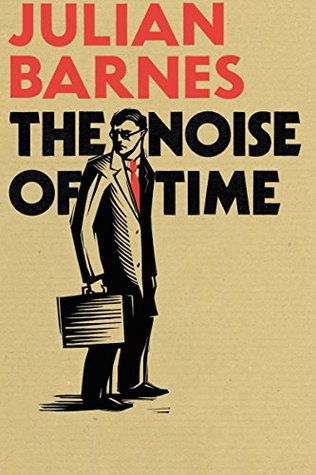More on this book
Community
Kindle Notes & Highlights
Destiny. It was just a grand term for something you could do nothing about. When life said to you, ‘And so,’ you nodded, and called it destiny.
his underlying condition was one of high anxiety. He was a thorough-going neurotic. No, again it was worse than that: he was a hysteric. Where did such a temperament come from? Not from his father; nor from his mother. Well, there was no escaping one’s temperament. That too was part of one’s destiny.
He was an introverted man who was attracted to extroverted women. Was that part of the trouble?
To be Russian was to be pessimistic; to be Soviet was to be optimistic. That was why the words Soviet Russia were a contradiction in terms. Power had never understood this. It thought that if you killed off enough of the population, and fed the rest a diet of propaganda and terror, then optimism would result. But where was the logic in that? Just as they had kept on telling him, in various ways and words, through musical bureaucrats and newspaper editorials, that what they wanted was ‘an optimistic Shostakovich’. Another contradiction in terms.
The natural progression of human life is from optimism to pessimism; and a sense of irony helps temper pessimism, helps produce balance, harmony.
Was there a greater portrayal of the shattering of human illusions than King Lear? No, that was not quite right: not shattering, because that implied a single great crisis. Rather, what happened to human illusions was that they crumbled, they withered away. It was a long and wearisome process, like a toothache reaching far into the soul. But you can pull out a tooth and it will be gone. Illusions, however, even when dead, continue to rot and stink within us. We cannot escape their taste and smell. We carry them around with us all the time.
of course tyrants hated music, however strenuously they pretended to love it. Although they hated poetry more. He wished he had been at that reading by Leningrad poets when Akhmatova came on stage and the entire audience had risen instinctively to applaud her. A gesture which led Stalin to demand furiously: ‘Who organised the standing up?’
He liked to think that he wasn’t afraid of death. It was life he was afraid of, not death. He believed that people should think about death more often, and accustom themselves to the notion of it. Just letting it creep up on you unnoticed was not the best way to live. You should make yourself familiar with it. You should write about it: either in words or, in his case, music. It was his belief that if we thought about death earlier in our lives, we would make fewer mistakes. Not that he hadn’t made a lot of mistakes himself.
it was not easy being a coward. Being a hero was much easier than being a coward. To be a hero, you only had to be brave for a moment – when you took out the gun, threw the bomb, pressed the detonator, did away with the tyrant, and with yourself as well. But to be a coward was to embark on a career that lasted a lifetime. You couldn’t ever relax. You had to anticipate the next occasion when you would have to make excuses for yourself, dither, cringe, reacquaint yourself with the taste of rubber boots and the state of your own fallen, abject character. Being a coward required pertinacity,
...more
Perhaps this was one of the tragedies life plots for us: it is our destiny to become in old age what in youth we would have most despised.
A soul could be destroyed in one of three ways: by what others did to you; by what others made you do to yourself; and by what you voluntarily chose to do to yourself. Any single method was sufficient; though if all three were present, the outcome was irresistible.
During his last years, he increasingly used the marking morendo in his string quartets: ‘dying away’, ‘as if dying’. It was how he marked his own life too. Well, few lives ended fortissimo and in the major. And no one died at the right time. Mussorgsky, Pushkin, Lermontov – they had all died too soon. Tchaikovsky, Rossini, Gogol – they all should have died earlier; perhaps Beethoven as well. It was, of course, not just a problem for famous writers and composers, but for ordinary people too: the problem of living beyond your best span, beyond that point where life can no longer bring joy,
...more


